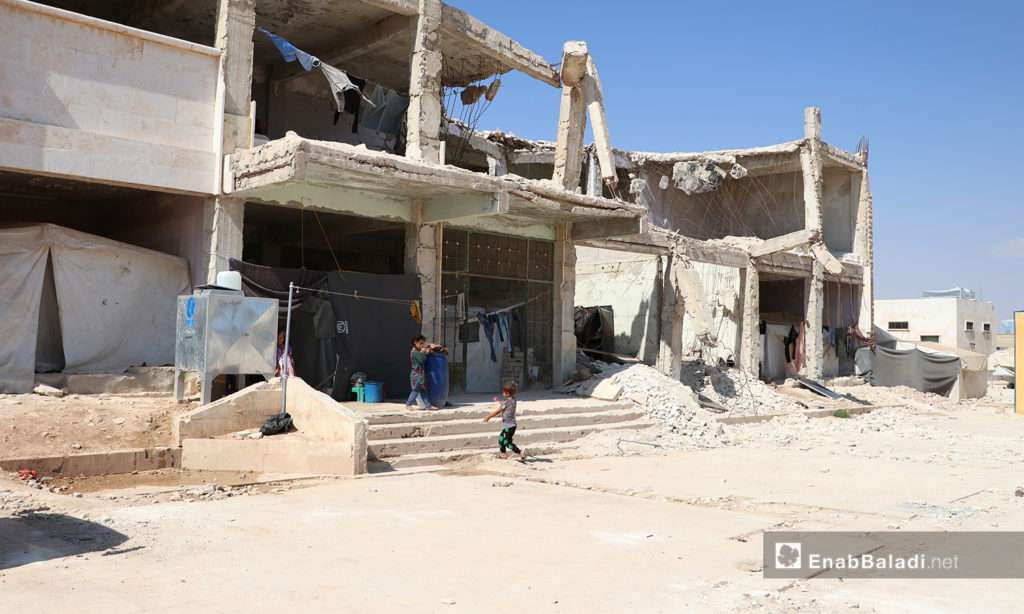Enab Baladi – Abdul Salam Majaan
Within the framework of service projects for civil society organizations aiming to rehabilitate damaged houses in several areas of the northern countryside of Aleppo, “Maram Foundation” and “Syrian Society for Relief and Development” (SARD) are working on a house restoration project for houses affected by bombing and battles in the villages of Kafra and Dabiq in the northern countryside of Aleppo.
Kafra’s local council signed a memorandum of understanding with the foundations, to restore the damaged houses in the village.
The head of the local council of Kafra village, Hassan Marei, explained to Enab Baladi that the aim of these projects is to help the people who cannot afford to rehabilitate their homes due to the severe economic condition in the region.
Marei said that the foundations set several comprehensive criteria for the selection of the beneficiaries of this project. First of all, the house is destroyed or damaged by bombing raids, fighting, or burning. Plus, the owner is a resident of the house and has papers proving his ownership.
He added that the high priority is given to poor families, who do not have the financial capacity to repair their homes, as well as widows, orphans, and people with disabilities, provided that the applicants are not benefiting from other associations or organizations.
Marei pointed out that the council signed a memorandum of understanding with the association to repair homes damaged by bombings or explosions, on the condition that the house was partially damaged.
In the event that a displaced family resides in the home, it will be repaired on the condition that the homeowner agrees to keep that family for no less than six months, without asking for rent payments.
In the village of Dabiq, north of Aleppo, “Maram Foundation” has started a restoration project for homes partially destroyed by battles and bombings, and the number of houses that the foundation is rehabilitating is about 110.
The head of the local council for the village of Dabiq, Mohammed Hamidi, explained to Enab Baladi the details of the house restoration project in the village, as the council signed a memorandum of understanding with the “Maram Foundation” to carry out a restoration project of partially destroyed houses, including the restoration of doors and windows, the structural maintenance of bathrooms, kitchens, and toilets, and restoration of cracks or fractures resulting from the bombing.
Hamidi confirmed that the foundation is implementing the project, after examining and verifying the registered house and its owner as well.
The council also signed a memorandum of understanding with the “Syrian Society for Relief and Development” (SARD), which in turn will implement three different projects.
The first project is the restoration of multi-family housing, that is, more than five families reside in one house which needs restoration and repair, provided that the displaced family lives in the house for a full year without paying any rent to the primary house owner.
As for the second project, Hamidi said that it includes maintenance and repairs of the damaged houses, and is divided into three sections: The first section is for houses with slight damage, including cracks and the loss of some doors and windows, and the second section is designated for houses with medium damage, such as losing part of the house or walls and the presence of large cracks.
As for the third section, it is great harm represented in the loss of parts of the house and a major crack in the foundations or walls.
Regarding the admission criteria, Hamidi indicated that it was agreed with the foundations on specific criteria, in which the head of the family is a widow with no breadwinner, or that the children in the family are orphans or the head of the family is a person with special needs.











